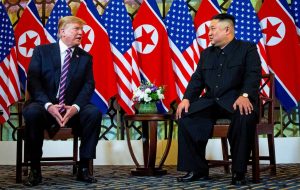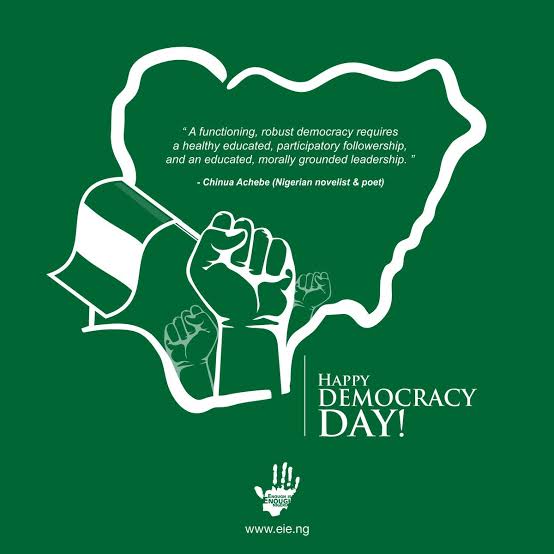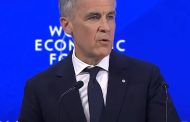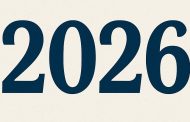By Aminu Habibu Jahun
Slightly over two decades after the take-off of the Fourth Republic, democratic rule has been so grotesquely disfigured in the hands of a few ‘democratic suitors’. Bereft of most of its liberal illusions, with an albatross of a disappointing scorecard, democracy has become at best a tool for the use of the ruling class to dominate the nation and, at worst, a lullaby to dampen the spirit of real change by its magical spell-that despite the nightmarish life under its executive bearers in Nigeria, the citizenry should remain patient because, at the end of the day, lives would matter and they would be more abundant. But, the abuses of democracy are becoming apparent, to the extent of it beginning to lose its appeal in Nigeria.

Democracy and illiberalism?
It is being intertwined with the foreign policy objectives of the United States which makes it a necessary and irreplaceable imposition in its satellite states in the post cold war context, subjects democracy to further abuses. Out of orbit states like China and Cuba or Syria and Iran amongst others, which divested democracy of the toxic traits of its supposed prototype domiciled in the United States to suit their societies, have committed an unforgivable original political sin; derogatorily tagged illiberal states, to be devoured at the right and critical time, as many others were summarily dealt with in Africa, Asia, the Middle East and Latin America.
Its staunchest promoters give democracy a special aura: it is projected as an only option; it has no alternative like similar paradigms forced on mankind but which made Francis Fukuyama to gleefully parrot former British prime minister, Margaret Thatcher that “there is no alternative”, this time not to the economic package of the neoliberal paradigm the Iron Lady was promoting in the 80s but to its political component: liberal democracy. This variant is said to have outpaced its closest rival: totalitarian dictatorship of the former Soviet block on account of which Fukuyama posited a glorious end to history since Man has propelled liberal democracy to its fullest development which allegedly enables democratic societies to endure. They believe that this has been proved with the collapse of the Berlin Wall and the demise of the Soviet Union and its coterie of puppet socialist states cited as evidences. Unyielding to the liberal democratic onslaught, some states like Cuba and Iran unsettle Fukuyama’s “end of history” assertion a vista that there exists a viable alternative to democracy and Man is yet to see the end of history.
Since Nigeria is neither Cuba nor Iran, China or Syria, nations which exorcised the evil out of liberal democracy and adopted some of its traits to suit their peculiar needs, Nigerians have to put up with it, warts and all, including its penchant of accomplishing what it should not, producing an ever widening ungoverned spaces where the state ceases to function; exponentially disempowering its modern day slaves (the poor majority) whose collective sacrifices and toils produce the wealth which sustains it. Additionally, it is simultaneously empowering the democratic masters hibernating in the legislative and executive chambers to amass fortunes and establish a political illuminati which commodifies electoral politics which only a select few could afford.
The Third and Fourth Republics in Nigeria have vindicated Marxian scholars who argue that there cannot exist real democracy in a capitalist motivated economy as it is absent anywhere where private economic interests provide it direction, substance and encumber it. In all such cases, such interests are at variance with peoples’ interests which would never allow genuine democracy to thrive; and what exists is plutocracy shrouded as democracy.

The two leading candidates at the moment anyway
Forty years ago, the powerful transport minister in the Second Republic, the late Dr Umaru Dikko, reacted in his brisk manner to late MKO Abiola’s interest to pick the presidential ticket of the National Party of Nigeria, (NPN). He said that Nigeria’s presidency was not for sale to the highest bidder. That was then but now the prevailing political mood of the ruling classes is that the presidential ticket is no more than a commodity for sale to the highest bidders in the PDP and APC, more in the later than the former, with its presidential ticket sold at N100m. As most of the contestants have had either distant or recent ties with public offices and resources, one could hardly resist the temptation to conclude that most of the resources have been indecently acquired to be deployed in political contests.
The commodification of electoral politics became most noticeable in the Third Republic when retired generals and rich public officers and their associates forayed into politics, ready to displace established politicians to become the new loci of political power. They deployed money to actualise that dominance through the establishment of an effective patron-client political network, supplying financial resources whilst the politicians undertook the dirty political tasks. When electoral politics is defined by the amounts of money expended, the resultant public offices would sooner than later be overwhelmed by corruption as election financiers would be compensated mostly through foul means.
An analogy with the conspiratorial drive of developed economies to subvert the economic development of many a developing country and the drive to make electoral politics the exclusive domain of very few politicians will highlight how those who had a less encumbered entry into electoral contests have now commoditized political offices as barriers to political contests in Nigeria.
In one of his discourses, South Korean development economist, Prof Ha-Joon Chang, posited that the constraining factor towards the development of many countries is that developed nations and the specialised agencies they control impose on them development strategies they did not use when they were developing. And that these are strategies which would hardly facilitate development, thereby effectively sabotaging their development drive which Chang described as kicking away the development ladder from the developing countries so that they remain undeveloped.
Ironically, besides a few established individuals, most of Nigerian politicians came onboard in 1998/99 from the non-affluent classes. For the APC, some of its candidates in 2015 were not even from the middle classes. However, having consolidated themselves in government, they proceed to exclusively dominate electoral contests by kicking away the political ladder from other Nigerians. This way, they would hardly be able to contest elections in the dominant parties by huge funding requirements.
The political reproduction of the ruling politicians is such a mega business which overshadows all pretenses to make life worth living. It is the tallest attainment of democratic rule and whatever stands in its way is crushed by all means, including manipulating the legal system in Nigeria.




























